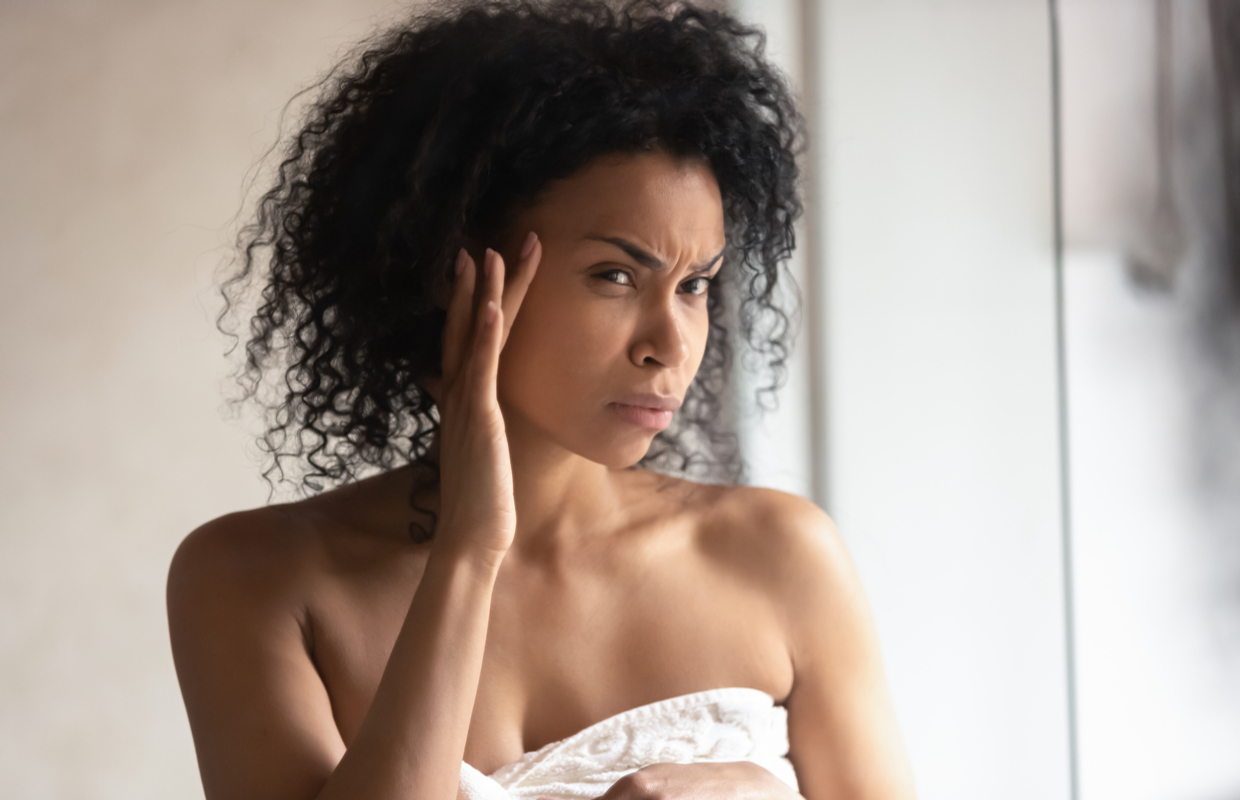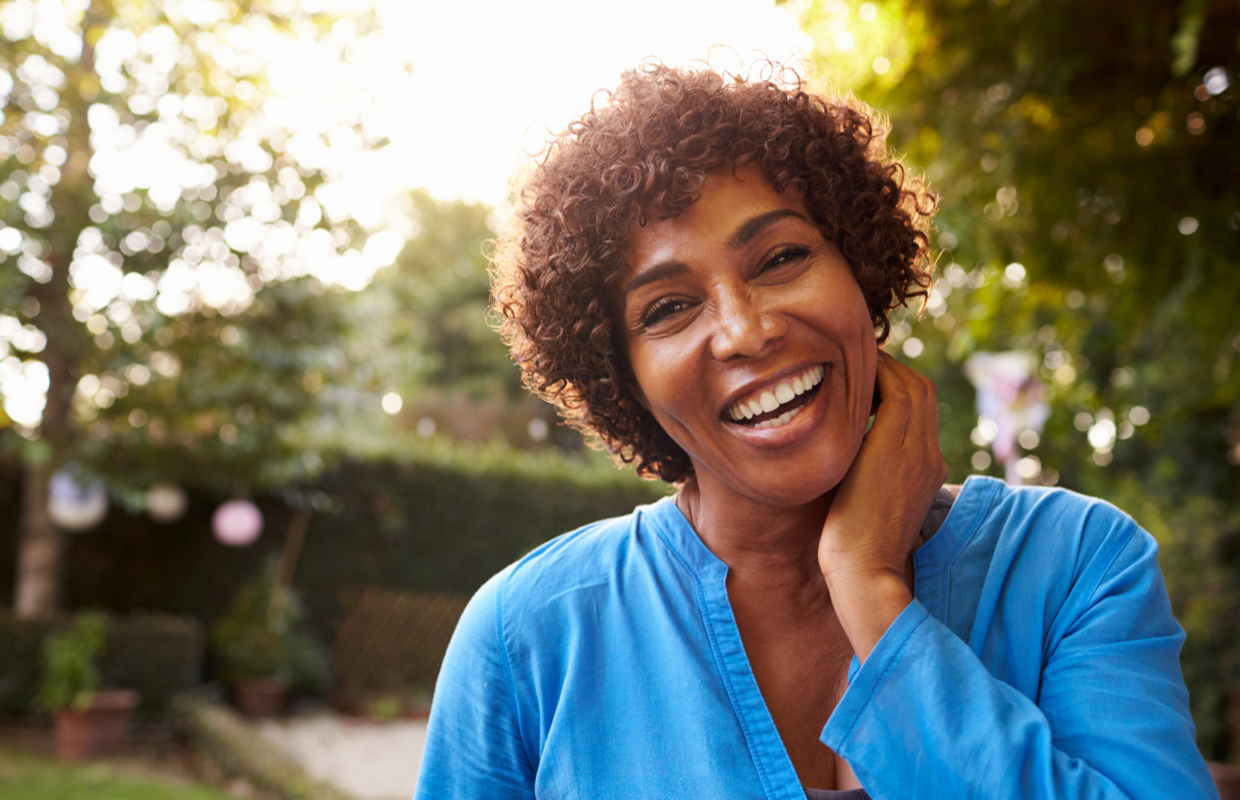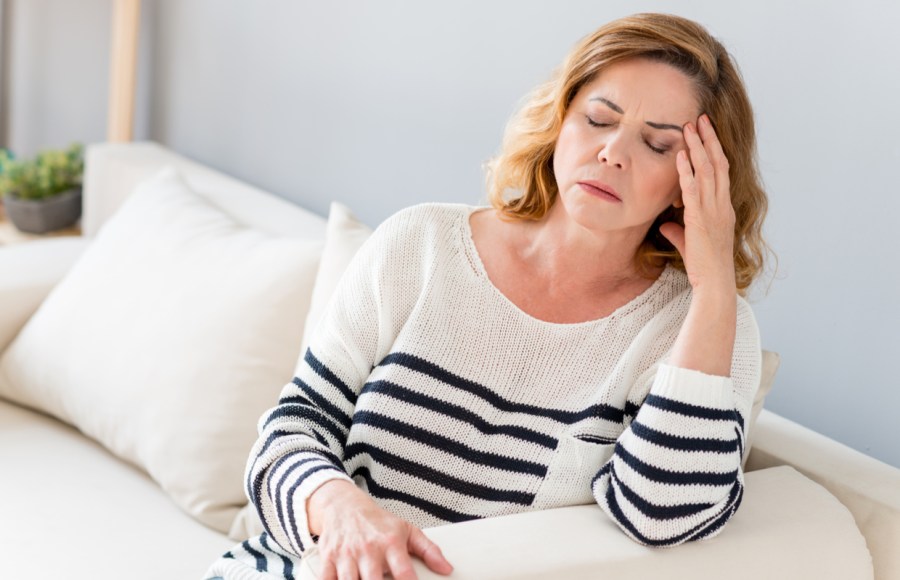It’s no news flash that stress is bad for your health, but did you know it could also be ageing your skin? Dr Vicky Dondos reveals how to lower stress levels for a radiant complexion and glowing skin…
How does stress affect your skin?
Our skin plays a super-active role in the body’s stress response. Skin cells also produce their own stress hormones independently of the rest of the body, so every time you are under stress, your skin is responding. Then it is further affected by the body directing its focus away from the skin barrier.
The very nature of how skin is built – constantly in a cycle of breakdown-repair-reproduction of all its components – means it’s always being rebuilt. It’s normally very effective at this process – except when the physiological pressures of stress play havoc with the repair mechanisms. Over time, this means that stress could contribute to the ageing of your skin.
Managing stress has been shown to decrease inflammation in the body and increase cellular repair, as well as improve gut health and nutrient absorption. All of these things affect your skin.
Lower your stress levels to prevent premature skin ageing with these simple tips…

How to reduce your stress levels and avoid prematurely ageing your skin:
1. Try stress-relief breathing exercises
As you breathe, you bring oxygen into your lungs and expel carbon dioxide. Oxygen is used for the production of adenosine triphosphate, the fuel that transports cellular energy from every cell’s generator. Plus, the lymphatic system requires breath to pump. It collects cellular waste and helps destroy pathogens that are no good for your skin.
- Close your eyes and try breathing out as if through a straw. Do 10 of these breaths. Repeat as often as you can.
- Now, breathe in for two counts, breathe out for four, then breathe in for three counts, then out for six.
2. Prioritise sleep to improve your skin
Deep sleep is essential for skin repair and new collagen production. Stress and poor sleep quality often go hand in hand – and premature skin ageing is often a key consequence. Try the following tips to get a better night’s sleep:
- Have a bedtime ritual. I use my skincare to signal to my body it’s bedtime. This is when the power of massage, oils and scents has a benefit.
- Make sure your room is dark, quiet and cool. Also, ideally no working or scrolling in the bedroom for at least an hour pre-bed.
- Avoid coffee after midday. If I drink coffee, I won’t have one after noon as it can affect my sleep.
- Eat early. It’s best to have no food for 2-3 hours pre-bedtime. Food makes your body produce insulin, which signals to your body to stay awake.
3. Find exercise that works for you
Find a form of exercise you enjoy. And, if you can, do it three times a week for 30minutes. Do not increase your stress doing something you hate.
Studies repeatedly show that exercise reverses ageing at a cellular level. It also calms you and gives you a natural high.

4. Spend time in nature to reduce stress
My name for nature is vitamin G, because being surrounded by green has such a powerful anti-stress effect. Aim for at least 20 minutes in nature every day. Breathe in the fresh air and try to switch off.
5. Be more grateful
Keep a journal. List what you’re grateful for; write about someone who was kind to you, or something you learned.
Keep a notepad by your bed to get into the habit of doing this every morning or night. The benefits of recognising what you’re grateful for lowers stress, leads to better sleep quality and increased feelings of joy and compassion.
6. Lower stress by spending time with friends
You know that being socially connected is good for your psychological and emotional wellbeing, but studies show it’s vital for physical health, too. Think about which friendships or relationships make you feel good.
If you can, plan to meet up with these positive people. If you can’t see them in person, can you meet them online? And is there anything you can do for people in your community? Studies show helping others is an excellent wellbeing booster and stress reducer.
7. Schedule in some ‘me time’ every day
I schedule personal time into my diary, every day. You can start with just five minutes. That might be for your skincare routine. It’s so important to make time for yourself each day and invest in your wellbeing
The Positive Ageing Plan: The Expert Guide to Healthy, Beauty Skin at Every Age, by Dr Vicky Dondos (£14.99, Penguin Life) is out now.








